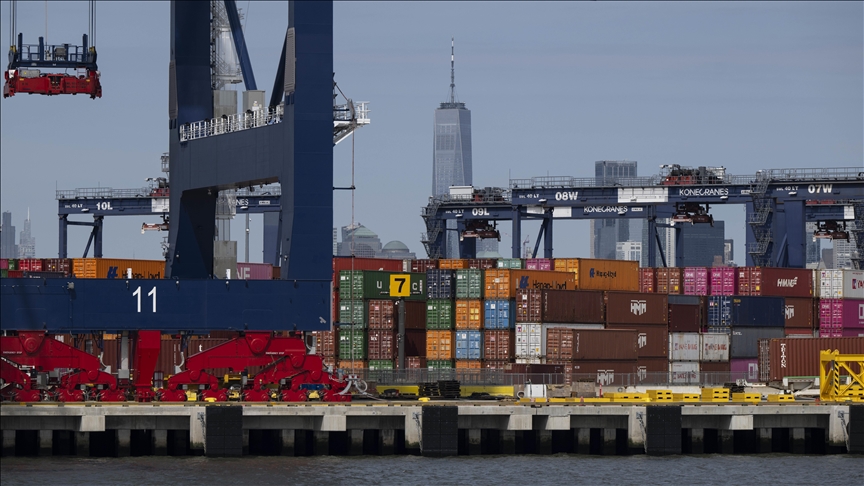BERLIN/ISTANBUL
The new government in Germany said Wednesday that uncertainty with US tariffs is negatively affecting global trade, production and investment.
A report by the German Ministry for Economic Affairs and Climate Action noted that the economy grew by 0.2% in the first quarter with private consumption, investment and increased exports before the tariffs were announced April 2, and that the economy is likely to slow in other quarters of the year, especially as job prospects in the export-oriented manufacturing sector remain low.
“Against the backdrop of the still unclear US tariff policy, trade and economic policy uncertainty remains significantly elevated, which could also have negative repercussions for global production and investment activity in the future,” according to the report.
“Business expectations remain subdued, particularly in the export-oriented manufacturing sector, so a renewed economic slowdown cannot be ruled out over the rest of the year.
“In addition to a recovery in consumer-related services, the manufacturing and construction sectors also benefited from favorable conditions, which was reflected in rising production and more positive sentiment indicators,” it said.
The tariff war and some of US President Donald Trump’s statements, meanwhile, have fueled concerns about the negative effects on global trade. Most analysts view Trump’s tariff policy as a “special risk” to German economic growth.
While Trump’s aggressive tariff policy casts a shadow over the global economic outlook, the German economy, which depends more heavily on the manufacturing sector than other countries in the region, remains vulnerable to persistent weakness in production.
The country’s economy contracted 0.2% in 2024 compared to the previous year. It tightened for a second consecutive year as increased competition with China and structural problems curbed the economy. The economy had contracted 0.3% in 2023.
Germany was the only G7 economy that failed to grow for the last two years. On April 24, the government lowered its growth forecast for this year, which was previously announced as 0.3% to 0% due to the effects of global trade tensions following Trump’s policies.
If the government’s latest forecast comes true and the economy does not grow this year, it will be the third consecutive year of no growth.
On the other hand, the German economy grew 0.2% in the first quarter due to household consumption expenditures and investments, which avoided a recession.

